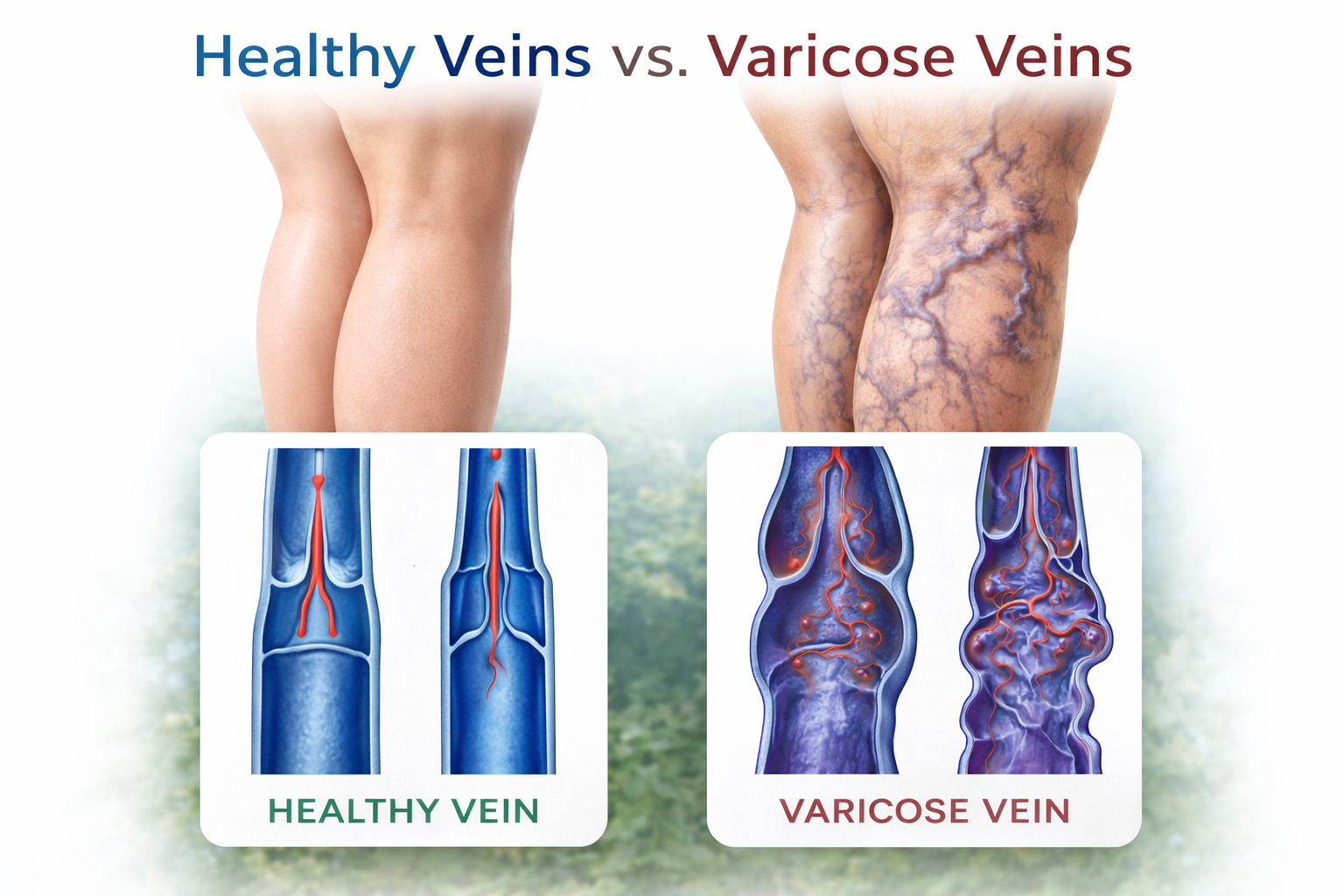A healthy metabolism is vital for energy, weight management, and overall well-being. Vitamins like B vitamins, magnesium, iron, vitamin D, and calcium play pivotal roles in supporting metabolic processes, enhancing energy levels, and maintaining a balanced gut microbiome essential for optimal body function. These nutrients are not just about energy conversion; they are the cornerstone of metabolic health.
In this guide, we’ll explore the benefits of these key vitamins, their role in metabolic efficiency, and how you can use them to enhance your overall health. By understanding the science behind these nutrients, you’ll be better equipped to make informed dietary and supplementation choices.

Factors That Shape Your Metabolic Efficiency
The efficiency of your metabolism depends on various interconnected factors that influence how your body processes energy and burns calories. At its core, your basal metabolic rate (BMR) represents the amount of energy your body needs to sustain essential functions while at rest, accounting for a significant portion of daily calorie usage. Hormones, particularly those produced by the thyroid, play a crucial role in maintaining this balance; any disruption in hormonal levels [1] can slow or speed up metabolism .
Regular physical activity, such as cardio or resistance training, not only burns calories but also enhances metabolic efficiency. When paired with a nutrient-rich diet, it can significantly improve energy utilization. Consuming whole, thermogenic foods can elevate your metabolic rate, whereas processed foods may hinder energy conversion. Additionally, muscle mass plays a vital role, as muscles require more energy to sustain than fat tissue, making strength training an essential part of boosting metabolic function.
Age is another factor to consider, as metabolic rates [2] naturally decline over time due to hormonal shifts and muscle loss. However, with targeted nutrition and exercise, it is possible to counteract many of these age-related changes. By addressing these factors holistically, you can maintain a healthy and efficient metabolism.
How Do Metabolism-Boosting Supplements Work?
Metabolic supplements are designed to enhance thermogenesis [3], support nutrient absorption, and fuel cellular processes. Here’s how they contribute to metabolic health:
- Fueling the Body with Nutrients: Supplements deliver critical vitamins and minerals needed for efficient metabolism, such as B vitamins and magnesium.
- Improving Nutrient Uptake: Nutrients like vitamin D aid in digestion and nutrient absorption, ensuring your body operates at peak efficiency.
- Supporting Cellular Functions: Magnesium facilitates ATP production, which powers cells and sustains metabolic processes.
- Promoting Thermogenesis: Ingredients like green tea extract stimulate calorie burning through heat production. Research indicates [4] that consuming specific thermogenic supplements can result in a prolonged increase in metabolic activity, even during periods of rest.
Essential Vitamins to Support Metabolism
1. Magnesium: The Metabolic Catalyst
Magnesium is essential for over 300 enzymatic reactions in the body, including those involved in energy production and ATP synthesis. This mineral supports efficient nutrient metabolism and helps maintain cellular energy. Foods rich in magnesium [4] include nuts, spinach, avocados, and dark chocolate.
2. Vitamin D: The Glucose Regulator
Vitamin D is known for its role in bone health and immunity, but it also aids in regulating glucose metabolism. Sunlight is a natural source of vitamin D, while dietary sources include fatty fish, fortified foods, and eggs.
3. Iron: The Oxygen Provider
Iron is critical for producing hemoglobin, which transports oxygen in the blood. It also supports cellular energy production and metabolism. Include iron-rich foods like lean meats, beans, and spinach in your diet to meet your body’s needs.
4. Calcium: The Energy Enabler
While commonly associated with bone health, calcium also plays a role in metabolic processes [6]. It assists enzymes that regulate energy generation and muscle contraction. Good sources include dairy products, green vegetables, and fortified juices.
5. B Vitamins: The Energy Specialists
B vitamins are fundamental to energy production, converting food into fuel for your body. This group includes eight vitamins, with B6 and B12 being especially impactful:
- Vitamin B12 supports DNA synthesis, nervous system health, and red blood cell production. It’s found in animal products like meat, fish, and dairy, making supplements crucial for vegetarians.
- Vitamin B6 aids in breaking down macronutrients and neurotransmitter production. Foods like bananas, chicken, and whole grains are excellent sources.
Practical Tips to Support Metabolism
In addition to vitamins, lifestyle changes can significantly enhance metabolic health:
- Exercise Regularly: Include both strength training and cardio to increase muscle mass and calorie burn.
- Sleep Well: Prioritize quality sleep to regulate hormones that influence metabolism.
- Manage Stress: Chronic stress can disrupt metabolic efficiency. Practices like yoga and meditation can improve both physical and mental health.
Conclusion
Optimizing your metabolism requires a comprehensive approach that combines proper nutrition, regular exercise, and mindful supplementation. Vitamins such as magnesium, vitamin D, iron, calcium, and B vitamins play critical roles in energy production and metabolic regulation. Pairing these nutrients with healthy lifestyle habits can significantly improve your metabolic health, energy levels, and overall well-being.
Before introducing new supplements, consult with a healthcare professional to ensure they align with your individual needs. By making informed choices, you can unlock your body’s potential for sustained energy and vitality.
References
- Professional, C. C. M. (n.d.). Hormonal imbalance. Cleveland Clinic. Retrieved from https://my.clevelandclinic.org/health/diseases/22673-hormonal-imbalance
- Shimokata, H., & Kuzuya, F. (1993). Aging, basal metabolic rate, and nutrition. Japanese Journal of Geriatrics, 30(7), 572–576. Retrieved from https://pubmed.ncbi.nlm.nih.gov/8361073/
- Himms‐Hagen, J. (1989). Role of thermogenesis in the regulation of energy balance in relation to obesity. Canadian Journal of Physiology and Pharmacology, 67(4), 394–401. Retrieved from https://pubmed.ncbi.nlm.nih.gov/2667732/
- Prather, J. (2023). The effects of a thermogenic supplement on metabolic and hemodynamic variables and subjective mood states. Journal of the International Society of Sports Nutrition, 20(1). Retrieved from https://www.ncbi.nlm.nih.gov/pmc/articles/PMC9987759/
- Spritzler, F. (2024, January 24). 10 Magnesium-rich foods that are super healthy. Healthline. Retrieved from https://www.healthline.com/nutrition/10-foods-high-in-magnesium
- Pannu, P. K., et al. (2016). The associations of vitamin D status and dietary calcium with the metabolic syndrome: An analysis of the Victorian Health Monitor survey. Public Health Nutrition, 20(10), 1785–1796. Retrieved from https://www.cambridge.org/core/journals/public-health-nutrition/article/associations-of-vitamin-d-status-and-dietary-calcium-with-the-metabolic-syndrome-an-analysis-of-the-victorian-health-monitor-survey/7BC7768B813F260B2DE073D1534B4271





